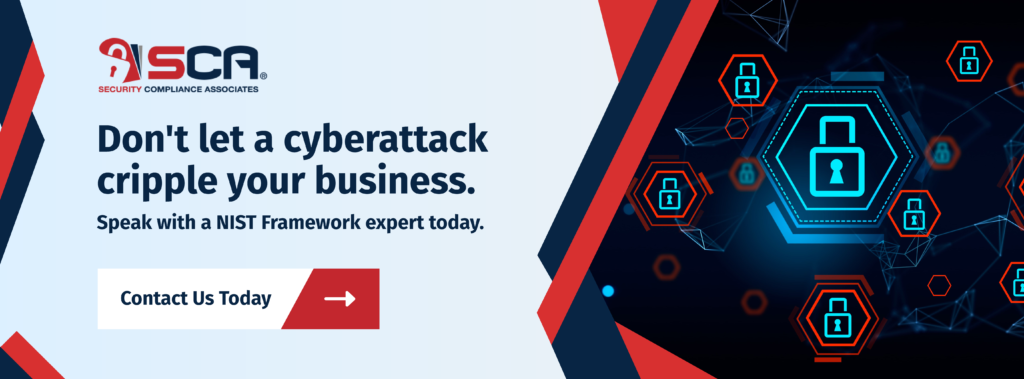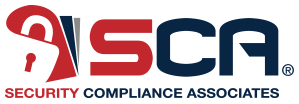
- April 28, 2023
- Brian Fischer
- 1475 Views
- 0 Likes
- Blog, Cyber Security
NIST Cybersecurity Framework Certification: All You Need To Know
NIST cybersecurity framework certification is gaining popularity as a high-volume search term. We want to clarify what NIST cybersecurity certification is genuinely available.
The NIST Cybersecurity Framework (CSF) can be confusing regarding certification. Many organizations are seeking ways to obtain what would be considered “NIST CSF certification,” but in reality, no such overarching certification is officially attainable. That said, there are some certifications that individuals on your organization’s cybersecurity team can obtain to help pursue NIST CSF compliance!
Related Content: The Ultimate Guide to Cybersecurity Risk Management
Professional Certifications for Individuals
There are several certifications that cybersecurity team members can obtain to help their organization pursue NIST CSF compliance. Here are some examples:
- Certified Information Systems Security Professional (CISSP): This certification is offered by the International Information System Security Certification Consortium (ISC)² and covers various cybersecurity topics, including access control, cryptography, and security operations. CISSP is often required or preferred for cybersecurity positions.
- Certified Ethical Hacker (CEH): This certification is offered by the International Council of E-Commerce Consultants (EC-Council) and covers the techniques used by hackers to gain unauthorized access to computer systems. CEH holders are trained to identify vulnerabilities in computer systems and apply countermeasures to protect them.
- CompTIA Security+: This certification is offered by CompTIA and covers various cybersecurity topics, including network security, threat management, and identity management. Security+ is an entry-level certification often required or preferred for cybersecurity positions.
- Certified Information Security Manager (CISM): This certification is offered by the Information Systems Audit and Control Association (ISACA) and covers the management aspects of cybersecurity, including risk management, incident management, and governance. CISM is often preferred for leadership positions in cybersecurity.
- Certified in Risk and Information Systems Control (CRISC): This certification is also offered by ISACA and focuses on risk management in cybersecurity, including risk identification, assessment, evaluation, and response. CRISC holders are trained to help organizations manage cybersecurity risks and comply with industry standards such as NIST.
These certifications demonstrate a cybersecurity professional’s expertise and knowledge in various areas of cybersecurity. They can help organizations pursue NIST CSF compliance by ensuring that their team members are knowledgeable and skilled in implementing and maintaining adequate cybersecurity controls.
NIST CSF for Organizations
For organizations, there is no official NIST CSF certification. However, there are ways to implement the NIST CSF.
First, it’s an evolutionary process that begins with determining your CSF current state, what you have in place and what is missing. There are several frameworks and NIST standards that are cross referenced in the CSF including CIS, COBIT, ISA, ISO and NIST Special Publication (SP) 800-53,.
Related Content: Using the NIST Cybersecurity Framework to Build Your Cybersecurity Program
Organizations should next engage in a risk assessment, which involves assessing their systems and infrastructure to identify potential vulnerabilities and risks. This risk assessment will help organizations to identify the necessary controls to mitigate identified risks .These controls may include policies, procedures, hardware, software, and other technical or administrative measures. They’ll also want to conduct internal audits regularly to ensure that their controls are adequate and to identify any areas for improvement. The risk assessment will also help to determine which CSF practices are appropriate to achieve the organization’s target CSF state.
An independent auditor provides a high degree of impartiality and value to this process. An independent auditor can best determine how well an organization aligns with NIST CSF requirements. The auditor will review the organization’s controls and processes and provide a report on their findings. Quality reporting will also include corrective advice to help organizations make improvements effectively and efficiently as well as how to track this progress with a POAM, Plan of Action and Milestones. Once an organization reaches their target state, an independent auditor can validate this accomplishment and issue a report and letter of opinion stating as such.
This is NOT a certification per se, but rather a status that shows organizations’ stakeholders that they have done their due diligence to ensure proper cybersecurity standards in line with one of the most comprehensive frameworks available.
The NIST Cybersecurity Framework provides a comprehensive set of guidelines to help organizations strengthen their cybersecurity posture and reduce the risk of cyberattacks. By following the steps outlined in this article, organizations can work towards implementing the NIST CSF and strengthening their cybersecurity measures. Investing in the above certifications for your cybersecurity team is a great way to embrace prudent cybersecurity practices and the NIST CSF!



